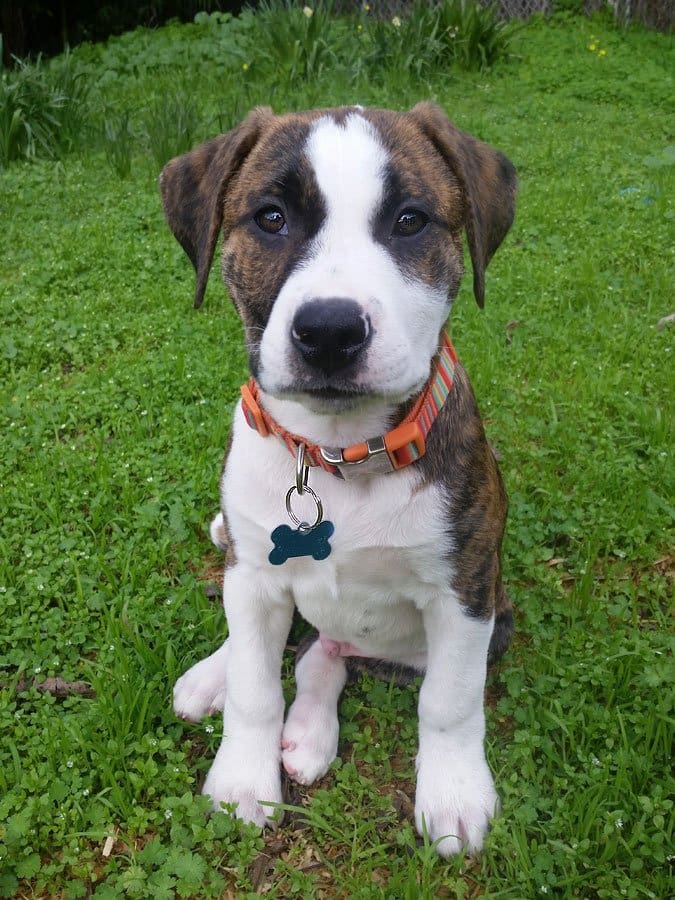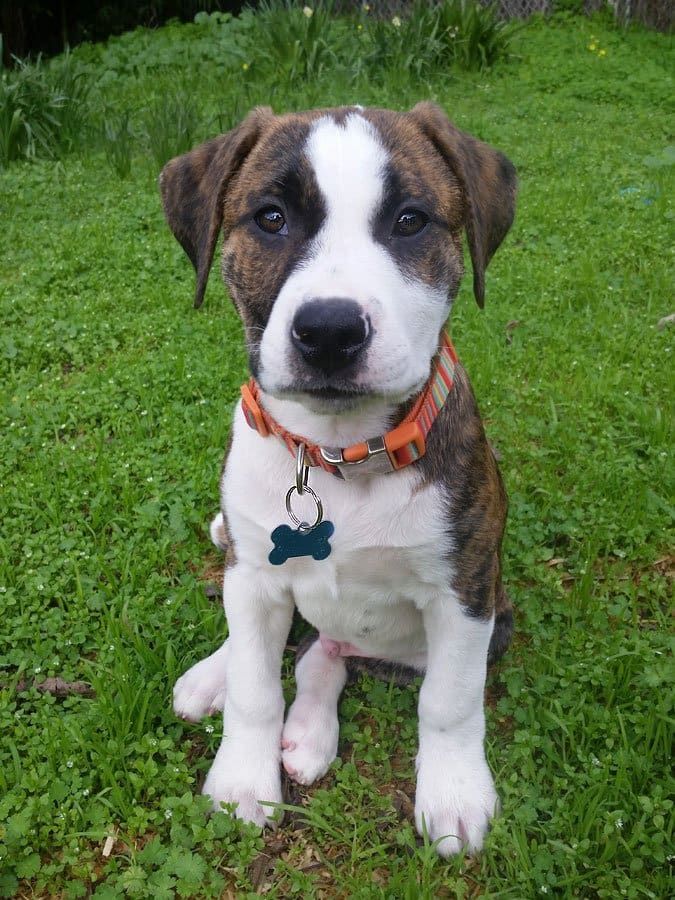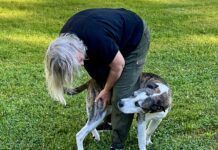I’ve heard it from a dozen different people in the past few weeks: “Oh my goodness, Nancy, that puppy LOVES you!” In every case, the person who made the spontaneous exclamation was prompted to do so by witnessing the same phenomenon: Seeing my new puppy sit calmly and stare, making direct eye contact with me.

The puppy, Woody, may well love me – I certainly love and adore him! But what’s the true explanation? Does he stare at me because he loves me, or has he developed affection for me as a result of all the reinforcement he’s received for that eye contact?
Honestly, I think it’s the latter. Humans love an extended gaze, and even people who don’t particularly like or understand dogs tend to respond warmly to a dog’s soft, direct eye contact. Woody learned early on that he got more petting and treats when he sat quietly and gazed at me – I noticed him doing it more than the rest of the other eight puppies in his litter, when he was as young as five or six weeks old. He got a lot of treats for the behavior, because it’s one I like to encourage in all of my foster dogs and puppies: It helps them win hearts, minds, and homes from prospective adopters!
Well, I was a little too successful this time! It worked its magic on me!
Researchers have confirmed why we humans love the gaze of our dogs so much. In the April 17, 2015 issue of Science, an article entitled, “Oxytocin-gaze positive loop and the coevolution of human-dog bonds” researchers reported that oxytocin levels increase in both dogs and humans when they gaze at each other. Oxytocin facilitates and strengthens bonding in every mammalian species.
From a training perspective, too, it’s a good thing for your dog to pay attention to you, and your face in particular. Dogs are master observers, and often learn your “tells” – expressions and movements and breathing patterns that reliably predict your next move, whether or not you consciously knew what you were about to do or not! This is why you can’t find your dog right before you were about to load him into the car for a trip to the vet or groomer, why he is so depressed the day before you leave for a vacation without him, and how he knew to wait for you by the door the minute you decided you needed to get out for a walk. You can use this effect to your advantage, by consciously using reliable body language or facial expression cues for your dog’s behaviors that you’d like to increase.
I’m in love with Woody, and I hope Woody loves me – but for now, I’m thrilled enough that he finds it reinforcing to watch me. I want to sustain that behavior forever.






